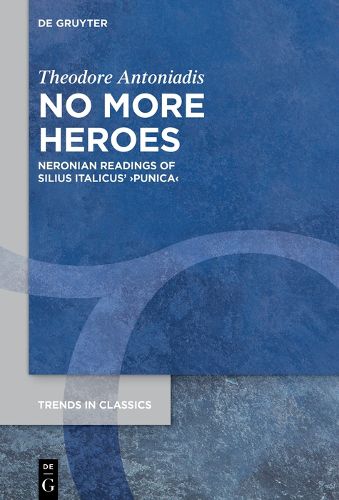Readings Newsletter
Become a Readings Member to make your shopping experience even easier.
Sign in or sign up for free!
You’re not far away from qualifying for FREE standard shipping within Australia
You’ve qualified for FREE standard shipping within Australia
The cart is loading…






This book offers an alternative reading of Silius Italicus' Punica against the political and literary backdrop of Nero's reign-one of the most underexplored areas in Flavian scholarship. Although Silius is no longer dismissed for his lack of originality or reduced to a nostalgic imitator of Vergil, readers have yet to fully grasp the subtle implications of his self-conscious engagement in a constructive dialogue with the imperial present. As a result, they often misinterpret the Punica as an epic firmly rooted in the Flavian era, overlooking or downplaying Silius' multifaceted "belatedness" as a man who lived under twelve emperors and witnessed firsthand Nero's downfall and its aftermath.
Nevertheless, the primary goal of this monography is not to challenge the "official dating" of the poem's composition-though it does raise legitimate questions about its status as an "exclusive product" of Flavian Rome. Instead, its central premise is that the Punica should not merely be seen as a historical epic linking Rome's distant past to its imperial present but rather as a fundamentally political poem that reflects Silius' "imperial anxieties"-anxieties rooted in Nero's reign and persisting beyond his fall.
$9.00 standard shipping within Australia
FREE standard shipping within Australia for orders over $100.00
Express & International shipping calculated at checkout
This book offers an alternative reading of Silius Italicus' Punica against the political and literary backdrop of Nero's reign-one of the most underexplored areas in Flavian scholarship. Although Silius is no longer dismissed for his lack of originality or reduced to a nostalgic imitator of Vergil, readers have yet to fully grasp the subtle implications of his self-conscious engagement in a constructive dialogue with the imperial present. As a result, they often misinterpret the Punica as an epic firmly rooted in the Flavian era, overlooking or downplaying Silius' multifaceted "belatedness" as a man who lived under twelve emperors and witnessed firsthand Nero's downfall and its aftermath.
Nevertheless, the primary goal of this monography is not to challenge the "official dating" of the poem's composition-though it does raise legitimate questions about its status as an "exclusive product" of Flavian Rome. Instead, its central premise is that the Punica should not merely be seen as a historical epic linking Rome's distant past to its imperial present but rather as a fundamentally political poem that reflects Silius' "imperial anxieties"-anxieties rooted in Nero's reign and persisting beyond his fall.